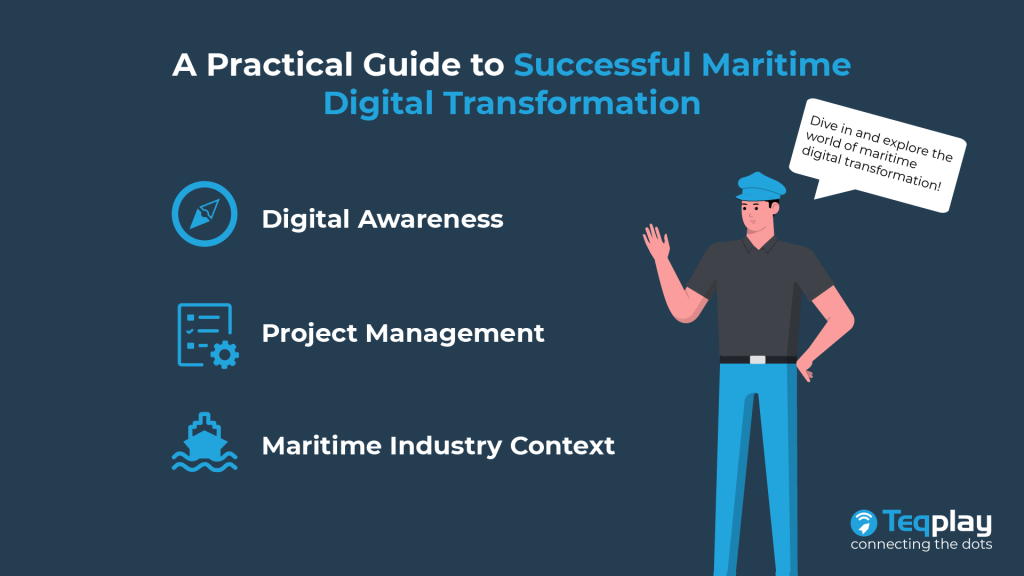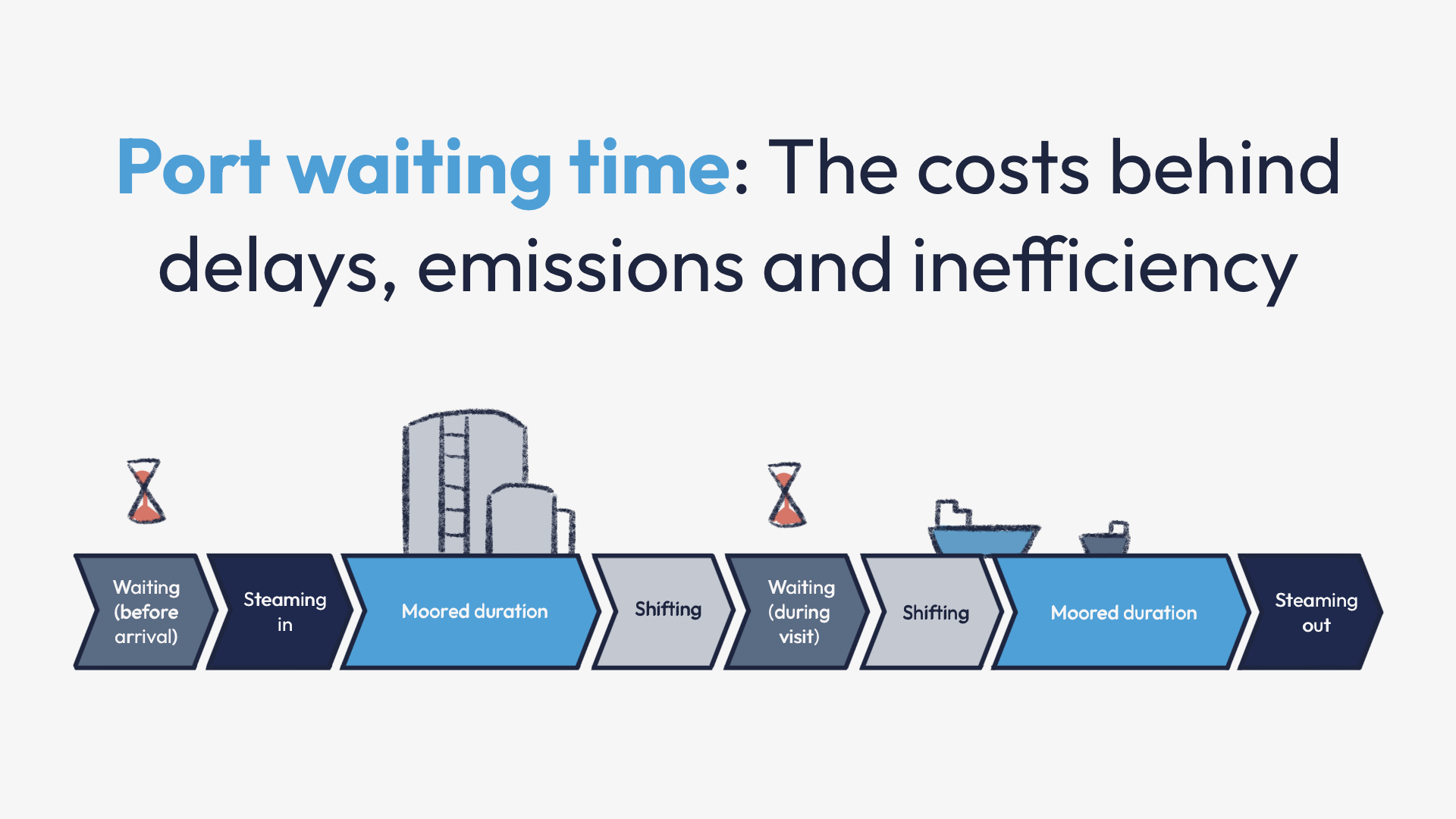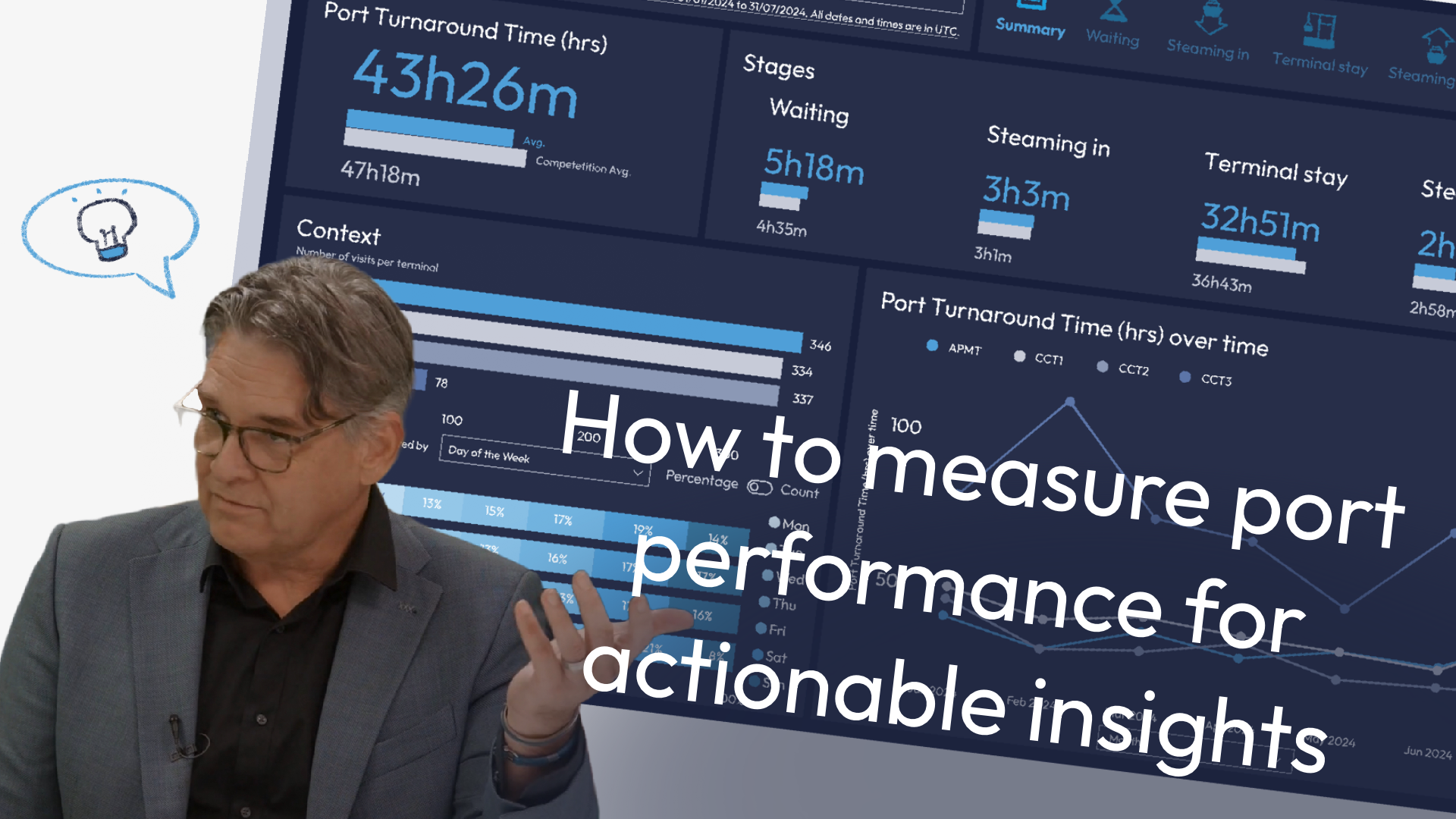The maritime industry has been a vital part of global trade for centuries, connecting businesses and economies worldwide. However, as the world becomes increasingly digitized, the maritime industry must also embrace digital transformation to stay competitive and meet the demands of a changing landscape.
But digital transformation is not just about bringing in new technology. It requires a significant change in mindset, strategy, and skills to effectively integrate technology into an organization’s operations. In this guide, we will delve into the skills required for managing the process of adopting and using technology, including digital awareness, implementation, and contextual knowledge.
So, let’s dive in and explore the world of maritime digital transformation, step-by-step.

Understanding the skills required for digital transformation management
As new technologies emerge, there is a growing need for people who have the skills and knowledge to manage digital transformation processes effectively. In this guide, we provide an overview of what a manager will need to know for successful transformation:
Digital Awareness
Digital awareness is the ability to understand and navigate the digital landscape. In order to implement change, a manager should first be well-versed in the latest technological trends and advancements and should have an understanding of how these technologies can be used to enhance the organization’s value. They should be able to identify opportunities for digital innovation and stay up-to-date with emerging technologies that can contribute to the organization’s success. Additionally, they should have a keen sense of how the organization’s digital footprint can impact its customers, suppliers, and partners.
Project Management Skills
Digital transformation is a complex process that involves multiple stakeholders, departments, and processes. A digital transformation manager should have strong project management skills to ensure that the implementation process runs smoothly. This includes developing a strategy for implementation, identifying the right technologies, coordinating with other departments, managing budgets and timelines, and communicating progress updates to key stakeholders. Collaboration and communication are crucial aspects in this step. The manager should also have experience in managing change and be able to navigate any potential resistance to change.
Industry Context
The maritime industry is unique, with specific language, organizational structures, and business processes. The business manager needs to have a good understanding of the industry’s context to ensure that the digital transformation aligns with the industry’s unique needs and requirements. This includes understanding the regulatory environment, compliance requirements, and industry-specific challenges. By having a deep understanding of the industry, the manager can identify areas where technology can be used to drive growth, reduce costs, and enhance business processes.
Navigating resistance to change
Massive change can be overwhelming for people in the industry and can lead to resistance to change.
Therefore, a step-by-step approach should be taken, with each step bringing value and involving people in the process. It’s important to focus on building trust and confidence in the technology and information being implemented. This can be achieved by demonstrating the value of the technology to the business and involving people in the process, so they see the benefits and start to pull for change.
The focus should be on taking the first step and then nurturing the growth of the transformation. The first step is the biggest hurdle, but once a maritime business is determined to go through it, the potential of digital transformation is near limitless. Nurturing the growth of transformation means identifying areas where the technology can provide the most value and implementing it in a way that is manageable for the organization. It’s important to continuously evaluate the technology stack and push for the last piece of value that can be gained from it.
A practical use case: start small and go big
There is a need within the industry to always have information at hand. In order to get this information, maybe you will make a really big document and do a lot of questionnaires, etc. to try and find out what you want to know.
But Teqplay said, no. We should do it differently. So we started off with the port authorities and skippers and asked: what is it that you truly need? What are the issues that you are running into?
Teqplay started a very small initiative, starting from an app that we have previously developed and from which this initiative grew. Now, there are 3500 skippers who are using the app actively, and 7 port authorities who are supporting the initiative.
By bringing together port authorities and skippers, we were able to envision the challenges and requirements of the industry firsthand. This demonstrates the power of collaboration and innovation in addressing industry challenges through digital solutions. By leveraging these skills and approaches, the maritime industry will unlock the full potential of digital transformation and drive growth and competitiveness in the years to come.

Léon Gommans | CEO/Co Founder of Teqplay
A serial entrepreneur who’s passionate about #innovation, #technology, #collaboration, and of course, #maritime. The mission is: to connect the dots & to get it to work, together with the industry!
- +31 (0)6 55306660
- leon@teqplay.com
- Léon Gommans




